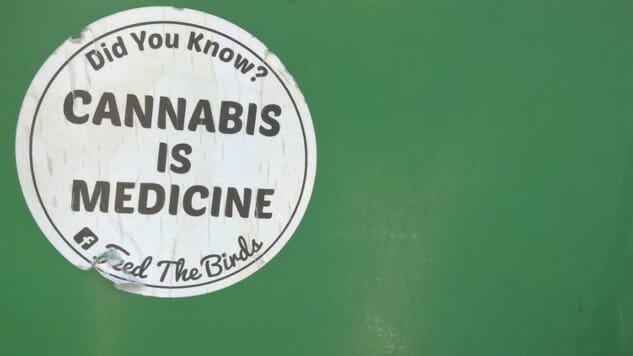Cannabis Connection: The Separation of Health and State

A recent 440-page report compiled by top academics confirmed that cannabis has medical benefits and asserted that government restrictions on cannabis research constitute a “public health problem.” Nevertheless, the federal government’s official and legal stance are that the plant has no medical value. Why such resistance to one of the world’s oldest therapeutic plants? To quote Watergate’s infamous Deep Throat, “Follow the money.”
In early February, President Trump met with several sheriffs at the White House, and one of them said, “Mr. President, on asset forfeiture, we got a state senator in Texas who was talking about introducing legislation to require conviction before we can receive their forfeiture.”
“Can you believe that?” said President Trump.
“And I told him that the cartel would build a monument to him in Mexico if he could get that legislation,” Eavenson replied.
“Who is the state senator? Want to give his name? We’ll destroy his career,” Trump responded, hopefully in jest, but you never know.
This exchange prompted Pennsylvania state senator Daylin Leach to tweet, “Hey @realDonaldTrump I oppose civil asset forfeiture too! Why don’t you try to destroy my career you fascist, loofa-faced, shit-gibbon!” Senator Leach’s tweet has since been retweeted 15,000 times.
The press had fun with the “destroy his career” and “loofa-faced shit-gibbon” remarks, but lost in the larger narrative is the issue itself, asset forfeiture, a law most people don’t realize exists. In fact, a full transcript of the conversation above showed that Trump did not know about it either. Acting Attorney General Dana Boente explained the “very successful program” to Trump as “taking narcotics proceeds and other proceeds of crime” and giving it to law enforcement, which prompted the President to double-down on his support for asset forfeiture.
So, what exactly is this program? Civil asset forfeiture allows law enforcement to seize possessions without charging—let alone convicting—a person of a crime. When it comes to asset seizures, a person is guilty until proven innocent, and property owners are not guaranteed a right to an attorney, forcing them into expensive legal battles to have any hope of reclaiming their assets. The law was meant to empower law enforcement to freeze the assets of drug cartels, but today it’s commonly used against everyday people who commit minor drug crimes so law enforcement can pad its budget. The media calls it “policing for profit.”
Here are a few examples of asset forfeiture in action. In 2014, a 22-year-old named Yianni in Pennsylvania got busted for $40 worth of drugs. The parents had nothing to do with the drug crime, but since it happened in their home, law enforcement used the civil forfeiture law to seize the house. The same-day eviction forced the entire family out onto the street immediately. Per CNN that year, law enforcement took the homes or cars of approximately 500 families in Philadelphia in the previous two years, netting about $6 million a year in seized assets.
-

-

-

-

-

-

-

-

-

-

-

-

-

-

-

-

-

-

-

-

-

-

-

-

-

-

-

-

-

-

-

-

-

-

-

-

-

-

-

-








































